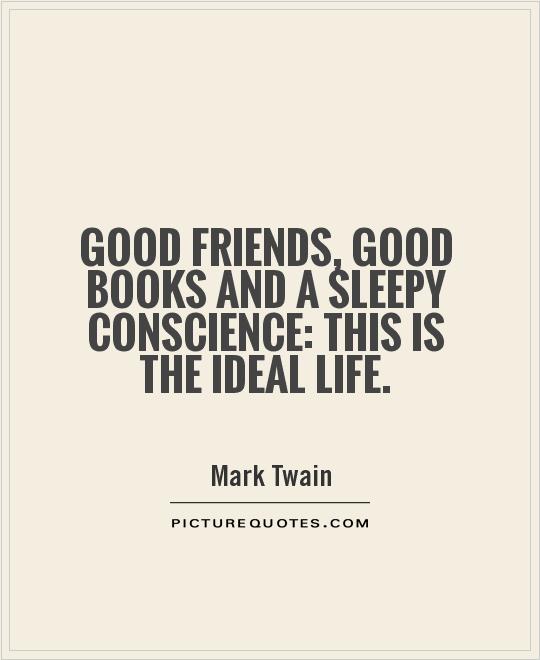Good friends, good books and a sleepy conscience: this is the ideal life


Good friends, good books and a sleepy conscience: this is the ideal life
Mark Twain, the renowned American author and humorist, once said, “Good friends, good books and a sleepy conscience: this is the ideal life.” These words encapsulate the essence of a fulfilling and contented existence, as espoused by Twain himself. In the context of Twain’s life and works, this quote reflects his belief in the importance of meaningful relationships, intellectual stimulation, and a clear conscience.Mark Twain, whose real name was Samuel Clemens, was known for his wit, wisdom, and keen observations of human nature. Throughout his life, he cultivated deep friendships with fellow writers, artists, and thinkers, such as William Dean Howells and Harriet Beecher Stowe. These friendships provided him with companionship, support, and inspiration, enriching his life and work. Twain understood the value of good friends in fostering personal growth, creativity, and emotional well-being.
In addition to the importance of friendship, Twain also emphasized the significance of good books in shaping one’s worldview and expanding one’s horizons. As a prolific writer and avid reader, Twain believed in the transformative power of literature to educate, enlighten, and entertain. He was a voracious reader of both fiction and non-fiction, drawing inspiration from a wide range of sources. For Twain, books were not just a source of knowledge, but also a source of solace and joy in times of solitude or distress.
Twain’s assertion that “a sleepy conscience” is essential to an ideal life speaks to his belief in the importance of moral integrity and self-reflection. Throughout his career, Twain grappled with issues of conscience, morality, and social justice in his writing. He was a fierce critic of hypocrisy, injustice, and cruelty, and used his platform to advocate for change. Twain understood that a clear conscience, free from guilt or regret, is essential for inner peace and happiness.












 Friendship Quotes
Friendship Quotes Love Quotes
Love Quotes Life Quotes
Life Quotes Funny Quotes
Funny Quotes Motivational Quotes
Motivational Quotes Inspirational Quotes
Inspirational Quotes